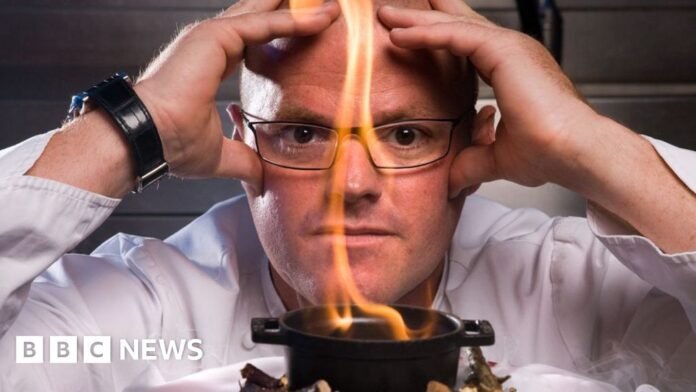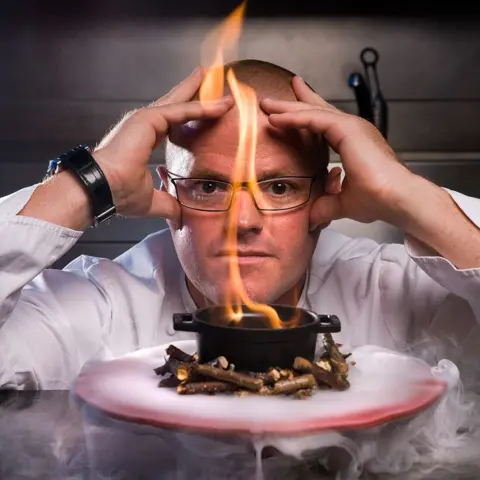 Shutterstock
Shutterstock“We just wanted a relaxing conversation with our dad and we weren’t able to have one,” says Jack Blumenthal. “It was horrible. And it was constant.”
Raw pain is etched on Jack’s father’s face as he finally realises how his undiagnosed mental illness – and erratic manic behaviour – hurt the ones he loves the most.
In a new BBC documentary, celebrity chef Heston Blumenthal is talking to his son for the first time about how he became impossible to live with.
“We’d plan it three weeks in advance, getting prepared just to see you for half an hour,” says Jack, who now runs a restaurant himself. “And there was nothing I could do to help you.”
Heston wipes a tear away. “I’m sorry,” he says.
‘Wired differently’
At the height of his fame in the 2000s, Heston Blumenthal was a culinary icon. Known for bacon-and-egg ice cream, snail porridge, and theatrical dining, he was a big brand worth big bucks. But behind the molecular gastronomy and Michelin stars, his mind was increasingly in turmoil.
For years, he thought he was simply “wired differently”.
Heston had long believed his emotional highs and lows were just part of who he was – part of the creative chaos that fuelled his culinary genius. In the early years, his imagination ran riot in a positive way, he says.
But gradually, the depression worsened. The highs became higher and the lows much darker.
He recalls having to “lie on the floor to cope” during the filming of a cooking programme several years ago. At one point, he felt as though his new ideas were like thousands of sweets falling from the sky – and he could only catch a few.
But in late 2023, a manic episode escalated into psychosis. Heston was hallucinating guns and had become obsessed with death.
He was admitted to hospital for the first time – and finally diagnosed with bipolar disorder. “How did I get to 57 years-old before I was diagnosed?” he asks.
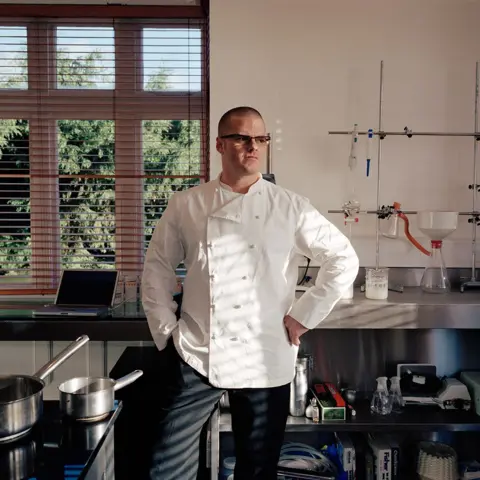 Peter Dench/Getty Images
Peter Dench/Getty ImagesI recently sat down with world-renowned psychiatrist Prof John Geddes to watch a new BBC new documentary I’d been collaborating on – “Heston: My Life with Bipolar”.
In the programme there’s a clip of Heston being interviewed by the BBC in 2020 about using robots in the kitchen. He uses surreal, nonsensical metaphors: “I want to put the shadow back into the sunlight, I want to put the inside out back into the outside in… I want to put the being back into the human.”
Watching the interview, Prof Geddes says it’s clear Heston was “in the midst of mania” at the time. “If I’d seen that then I would have immediately thought, ‘That is a sick man’,” he says.
The high-octane celebrity chef’s environment allowed his erratic behaviour to thrive. His eccentricity wasn’t only accepted, but celebrated. His brand flourished, nurturing the capricious genius, and he was supported by a team that kept him functioning. But at home there was no such infrastructure – no such buffer.
Research from Bipolar UK suggests that for every person with bipolar disorder, a further five family members – like Heston’s son Jack – are profoundly affected.
“Families fall apart because of the mania more than the depression,” says Prof Geddes.
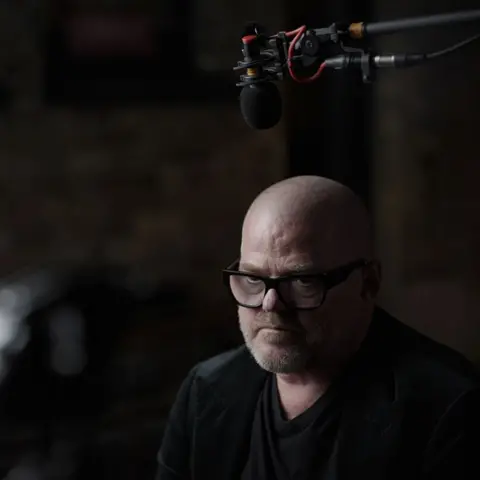
Lithium lifeline
During six months of filming, Heston’s psychiatrists wean him off the cocktail of pills prescribed to him after his hospital visit, and he is moved onto the mood-stabilising medicine, lithium.
This isn’t an easy process. Changing medications can offer trigger extreme reactions, so to do it on camera is brave.
Initially, Heston is subdued. He says the antipsychotics and antidepressants make him feel “zombified” and his memories are clouded.
But as time passes his mood lifts, his energy returns, and he regains some of his old swagger. Lithium is working for him – and you start to recognise the Heston of years gone by.
Towards the end of filming the documentary, Heston is keen to ask me about my own research into bipolar care in the UK.
The man I speak to is definitely still Heston – obsessing over the perfect peppercorn ratio – but now he’s calm, focused, and self-aware.
Prof Geddes isn’t surprised.
“Lithium is the gold standard of care, but in the UK we don’t use it enough,” he says. “It requires careful management from GPs and psychiatrists. In the NHS, the system simply can’t keep up – that’s probably one of the reasons why lithium use is falling in the UK, when it should be rising.”
The UK has a stark shortage of psychiatrists and mental health professionals so patients face waits that often stretch over years. On average it takes someone more than nine years to be diagnosed with bipolar disorder from first contact with a GP.
During my many interviews about the disorder, I heard psychiatrists describe bipolar patients as “ghosts in the system”, “the ones that fell through the cracks” and simply as “forgotten” or “let down”.
Lithium use, and timely access to psychiatrists are both directly linked to a reduction in suicidal thoughts in people with bipolar disorder. In the UK, death by suicide is rising for people living with the illness. This bucks all other downward trends for suicide.
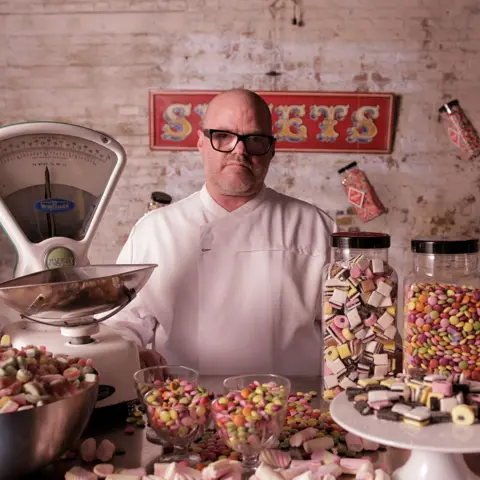
Learning to live with the fire
Heston’s diagnosis came only after he became a danger to himself – hallucinations, paranoia, and eventually a call from his wife to emergency services.
Despite weeks spent in a mental health clinic, and a year of medication and rebuilding his mind, given the choice Heston says he wouldn’t turn off his bipolar disorder if he could. It is a part of him. This answer captures the essence of his journey – of learning to live with the fire, not extinguish it.
“Someone living with bipolar cannot be separated from it – their personality is entirely and intrinsically connected to the condition,” says Prof Geddes. “Treatment doesn’t erase it, but it does make the mood changes manageable and helps a person function within their ecosystem – with their family, friends and job.”
Heston’s journey mirrors that of many: misunderstood mood swings, delayed diagnosis, and the long road to balance. But it’s also a story of identity, resilience, and the power of clarity after chaos.
The culinary world once masked his illness. Now, it gives him a platform to speak out – and he’s using it.
If you have been affected by any issues in this report, help and support is available at BBC Action Line.
